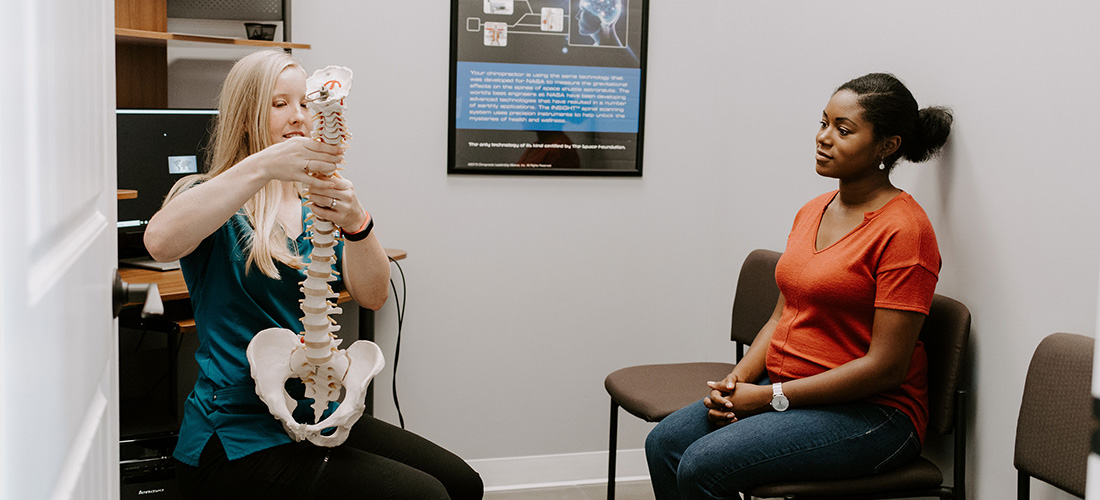Why Choose Principled Chiropractic?


The specialization of Inside Out Chiropractic is Neurologically-based Principled Chiropractic Care. Chiropractic is a non-invasive, holistic and all-natural healthcare approach that looks at a person’s well-being in terms of their entire body rather than just the area where symptoms manifest. Your nervous system controls and coordinates all of the cells, tissues and muscles in your body. It is centered in your spinal cord, and misalignments in the spine can affect the nervous system’s performance, greatly reducing your quality of life and potentially causing numerous health issues.
While all chiropractic care focuses on healing the body through the spine, Principled Chiropractic is different in that it operates solely on a model designed to maintain and preserve optimal lifelong health. It doesn’t just seek to correct the current condition and symptoms, but to enhance healing throughout life.
While most chiropractic methods provide effective temporary relief, true principled correction has lifelong benefits, correcting underlying major causes of ailments rather than simply addressing minor surface problems. Our society functions too much on a “sick care” model, which treats symptoms after they arise; Dr. Jacob Duvall at Inside Out Chiropractic in Tulsa recommends regular preventative care to maintain spinal health for years.
Would you wait until your engine freezes up before changing your oil? Of course you wouldn’t. Even more appropriate, would you wait until you’ve got a gum infection before you start brushing your teeth? The same applies to the health of your spine. Never wait for pain or injury—practice routine maintenance on your body instead!
Chiropractic care was never designed to work on the sick care model by simply addressing current symptoms. This is unfortunate because principled care was the goal of chiropractic over 100 years ago when it was first introduced and developed.
Principled chiropractic care works to identify and treat the underlying causes of healthcare concerns, to correct them at the source. It targets these base conditions rather than focusing on the symptoms they cause. Just as a doctor wouldn’t treat a heart attack through addressing numbness in the arm, a chiropractor shouldn’t target a nervous system disorder by easing pain solely in the leg.
For example, when a person suffers trauma to the bones at the base of their neck, say from a slip and fall, an accident or a sports injury, it can result in a subluxation in the neck which can, in turn, cause the ribcage to shift along with spinal and pelvic muscle groups. The result over time is that pressure on the discs in the back wear down and cause major trauma to the nerves. A principled chiropractor will treat the subluxation in the upper neck which caused everything else to shift rather than simply addressing the resulting pain in the pelvis.